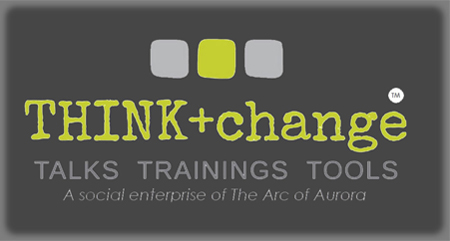 Accessibility. Equity. Opportunity. Rights. Inclusion. In the United States, we work hard to uphold and enact these values and we want our communities to thrive and work for everyone.
Accessibility. Equity. Opportunity. Rights. Inclusion. In the United States, we work hard to uphold and enact these values and we want our communities to thrive and work for everyone.
Why you should watch
- -Learn about the high prevalence of disability-related immigration and the various reasons people with disabilities choose to immigrate;
- -Gain insight into the major barriers people with disabilities face in navigating the immigration system;
- -Discover the ways in which the immigration process can exacerbate trauma for people with disabilities; and
- -Learn about the significant need for advocacy, accommodations, and policy reform in the immigration systems in the United States.
Who should watch
- -Advocates and activists, passionate about the intersection of disability and immigrant rights;
- -Disability professionals, interested in insights into the unique needs and challenges faced by immigrants with disabilities;
- -Legal and criminal justice professionals, working to understand disability accommodations in courts and detention centers;
- -Policy-makers, exploring the need for change in our immigration systems;
- -Community members, examining a more empathetic understanding of the experiences of immigrants with disabilities; and
- -Immigration service providers and social workers.
Prefer a podcast? Listen to the full-length podcast.
Download the social media kit.
A Legal Perspective – Meet Elizabeth Jordan, Visiting Assistant Professor Director of the Immigration Law & Policy Clinic (ILPC) at the University of Denver Sturm College of Law. ILPC provides legal services at the intersection of criminal and immigration law and explores systemic problems in the immigration enforcement system, such as racial and economic bias, law enforcement and accountability, hyper-incarceration, and access to justice. As a lawyer, Elizabeth has represented people with disabilities who have immigrated to the United States.
- A Lived Experience Perspective: Meet Alfredo Bonilla-Flores from Venezuela who identifies as having a Developmental Disability, Cerebral Palsy. Alfredo works at El Grupo Vida, a non-profit that has a mission to empower immigrants with disabilities and their families with information, training, and direct advocacy. Alfredo has his work permit, is living in the United States on asylum, and is hoping to become a citizen.
- A Lived Experience Perspective: Meet Jose Torres-Vega from Guatemala who identifies as having a neurological disability. Jose works at the Colorado Cross-Disability Coalition (CCDC), a non-profit that has a mission to advocate for social justice for people with all types of disabilities. Jose has been in the United States for decades and is a citizen.
- A Social Worker Perspective: Meet Katherine Valentin, MSW, a social worker who works for The Rocky Mountain Immigrant Advocacy Network (RMIAN). RMAIN provides free immigration legal services to immigrant children and to adults in immigration detention, and Katherine has worked with and supported people with disabilities and their families through the immigration process.
This TALKS series was made possible through support from Arc Thrift Stores, Colorado Access, Colorado Developmental Disabilities Council, Developmental Pathways, and The Arc of Aurora.
